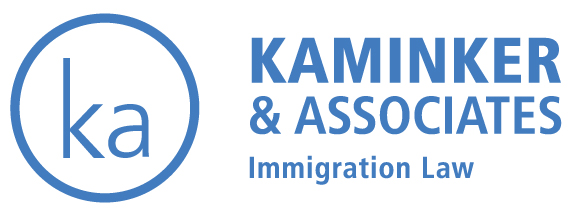Crossing Into Canada for Work – Don’t Get Delayed or Turned Back at the Border
There are many reasons foreign professionals need to enter Canada for work. Whether it is to secure a major deal, negotiate contract terms, provide after-sales support, or conduct maintenance on crucial equipment, crossing into Canada for business purposes is a common occurrence for many companies and their employees.
However, it’s important to remember that crossing the border as a worker is different than crossing as a visitor. There are different requirements for entrance and you’ll be expected to provide different documentation to the border agent than if you were traveling to Canada on holidays or for a visit.
Being delayed or turned away from the border as a tourist is inconvenient and disappointing, but being turned away as a worker can have serious consequences for businesses who are depending on having time-sensitive meetings or getting critical work done.
What’s more, being denied entry can be a red flag for future visits or trips into the country. Another major issue is a risk of criminal or medical inadmissibility. To help avoid these issues, this article will explain three of the most common difficulties professionals face at the Canadian border, and what to do to prevent them from happening to you or your employees.
Issue 1 – Not Being Prepared Before Arriving
One of the most common reasons for being stopped or turned away at the border is, quite simply, not being prepared. Many people don’t realize that what they are traveling to Canada to do would be considered “work”. Or they think that since they will only be in Canada for a short period of time they do not require a work permit. As a result, there is a risk that individuals do not have the necessary documentation required before arriving at the border.
Work is defined by the Government of Canada as “an activity for which wages are paid or commission is earned, or that competes directly with activities of Canadian citizens or permanent residents in the Canadian labour market.”
Based on this definition, if what you are going to be doing when in Canada is considered work, you should prepare for your trip well in advance and make sure you are traveling with all the documentation that you need, in the event that you require a work permit for the activities you will be conducting in Canada. The documentation required will depend on the country you are arriving from. Citizens of many countries can be granted a work permit upon arrival at the border, but this is not true in all cases. Don’t let a lack of preparedness be the reason you get turned away.
Issue 2 – A Previous Criminal Conviction
Canada has extremely strict rules surrounding previous criminal convictions. Even if the incident was decades ago, a criminal record in one’s home country can prevent a professional from entering Canada and make them inadmissible going forward. A frequent example we see all the time is a DUI from many years ago. While you may have crossed the border since, all it takes is a deeper look into your background by a border guard at a routine stop to have it come up as an issue.
Fortunately, depending on the offense, it is still possible to be able to cross into Canada. Working with an immigration lawyer, you can apply for a Temporary Resident Permit as well as a Criminal Rehabilitation Application in order to be admitted. These require a lot of documentation and take a great deal of time to process. For these reasons, it is crucial to be upfront about any past criminal offenses well in advance of traveling to Canada for business or work related purposes.
Issue 3 – Panicking
Crossing the border can be intimidating. Border guards are not in the business of helpful customer service. They are there to protect the country and to determine whether a person can enter Canada or not. They have every right to ask many questions about your work, your past and your reasons for traveling to Canada.
If you get stopped for inspection and held for questioning, the most important thing to remember is to stay calm, be polite, and be mindful of what you are saying. In these situations, your answers can have serious consequences on your ability to enter the country now and in the future.
You should always notify your immigration lawyer ahead of time that you will be crossing the border. Let them know what time you will be arriving at the border and what port of entry you’ll be going through. This way, if you get stopped or delayed for questioning, you can call your lawyer and have access to their assistance. Depending on where you are, the immigration lawyer will either talk with you (and/or the border guard) on the phone or come directly to see you. For businesses who regularly have employees traveling to Canada, having an immigration lawyer on standby is a good investment to ensure there are no barriers that will impact the ability of your employees entry into Canada.
Don’t Let Border Issues Delay Your Business
Chances are, if you’re traveling for work, it’s because it’s important to the success of your business. Any delays or issues can have a serious negative impact on this success. Make sure you are prepared with the right documentation, visas, and supporting paperwork before arriving at the border. Ensure any criminal history is disclosed and discussed with a lawyer prior to travel arrangements so that the proper permits can be obtained if necessary. And always have an immigration lawyer on standby when you or your employees are traveling so that you know who to call if you get stopped or run into other unforeseen issues. With these tips in mind, you’ll be more likely to arrive in Canada without any difficulties so that you can focus on the work you are coming to do.
Ashley Fisch B.A., J.D. is an Associate at Kaminker & Associates Immigration Law in Toronto, Ontario




Leave a Reply